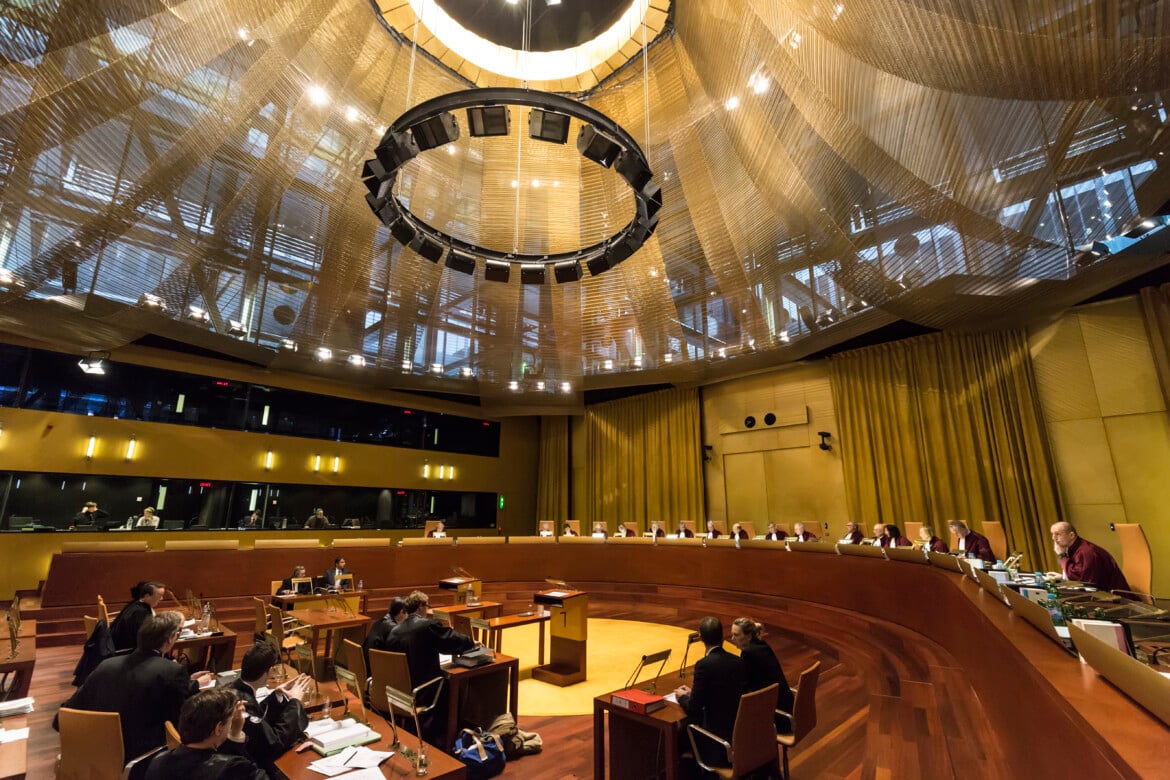Analysis
EU Court of Justice won’t fast track case that tests Italy’s offshore detention program
Phase one of the Albania project had already collided with rulings by domestic courts, which rejected the government’s overly lax labelling of certain departure countries as “safe,” paying little heed to EU criteria.

The court case over phase two of the Rome-Tirana protocol – the transfer of “irregular” migrants from Italian territory to Albania – is set to drag on. The EU Court of Justice rejected the Italian Supreme Court’s request for an urgent procedure with a notification dated July 8. Had fast-track rules applied, a ruling might have come within three months; now it could take as long as two years. The Luxembourg court’s 2024 report puts the average duration of proceedings, for all tracks combined, at 17.7 months.
“The Court deemed that there were no grounds for expedited proceedings. The order doesn’t give any reasons, but everything suggests the decision rested on the fact that the two men are not in custody,” says lawyer Cristina Durigon. She is defending the two foreign nationals – one Algerian, one Tunisian – moved on April 11 from Bari’s Repatriation Center to the Gjader center. Less than two weeks later, they sought asylum, and on April 23 the Rome Court of Appeal ordered their return to Italy. The Interior Ministry appealed, and on May 29, the Italian Supreme Court referred the matter to Luxembourg.
The judges on Italy’s highest court were doubtful that extraterritorial transfers of “irregular” migrants, and the continued detention of those who later apply for asylum, are compatible with the Return and Procedures Directives. Following that view, the Rome Court of Appeal – competent for such applicants – now routinely orders the release of anyone requesting international protection who is detained in Gjader. The continued operation of the Repatriation Center there, whose population has never topped 45 and now stands at 26, entirely depends on detention extensions signed by justices of the peace, seemingly indifferent to the Supreme Court’s referral of the matter to Luxembourg.
Under the ordinary timetable, by the time the EU ruling arrives the Procedures Directive will have been replaced by the regulations introduced in the EU Migration and Asylum Pact, which will enter into force from June 2026. Article 10 of the Pact says that protection seekers have the “right to remain on the territory of the Member State” until “the determining authority has taken a decision on the application in the administrative procedure.” The wording echoes the directive currently in force, but adds the qualifier “administrative” and, overall, removes a number of safeguards. The question raised by the Italian Supreme Court could thus remain current.
The Return Directive is another matter: in the coming months it will give way to a new text tackling this thorny issue. The Commission has tabled its proposal; Parliament and Council must now act. Member states and Brussels have sped up the draft because they want easier deportations. Among the novelties they tout are return hubs – repatriation centers built in third countries. Strong convergence on this point emerged two days ago at the first informal Justice and Home Affairs Council under Denmark’s presidency. On that occasion, Italian Interior Minister Matteo Piantedosi declared: “The repatriation centers on Albanian soil can be regarded as real precursors.”
The ministry has made a virtue of necessity, as those facilities were originally designed for something else entirely: to examine asylum claims from people who had never set foot in Italy, using accelerated border procedures that make protection harder to obtain and allow detention. The idea was to deter departures through a chilling effect.
Phase one of the Albania project had already collided with rulings by domestic courts, which rejected the government’s overly lax labelling of certain departure countries as “safe,” paying little heed to EU criteria. That dispute too has reached the EU Court of Justice (no less than 10% of preliminary referrals in 2024 – 98 out of 920 – came from Italian courts, topping the chart among EU countries). The Court will rule on that case on August 1, in a decision that is expected to be a watershed.
Originally published at https://ilmanifesto.it/centri-in-albania-la-corte-ue-dice-no-alla-cassazione-niente-urgenza on 2025-07-24
